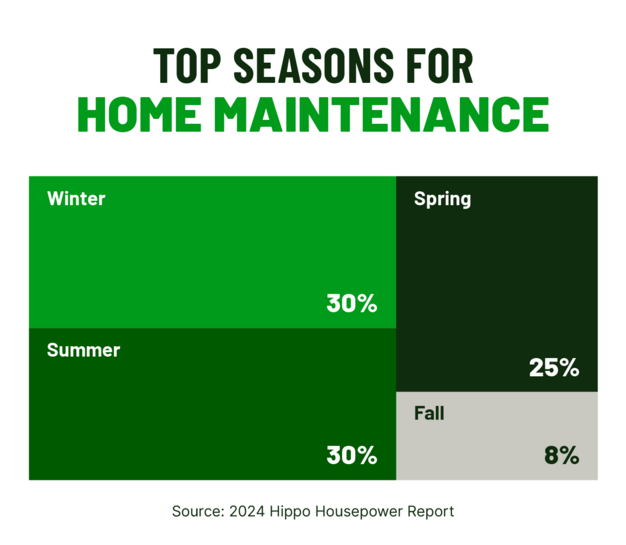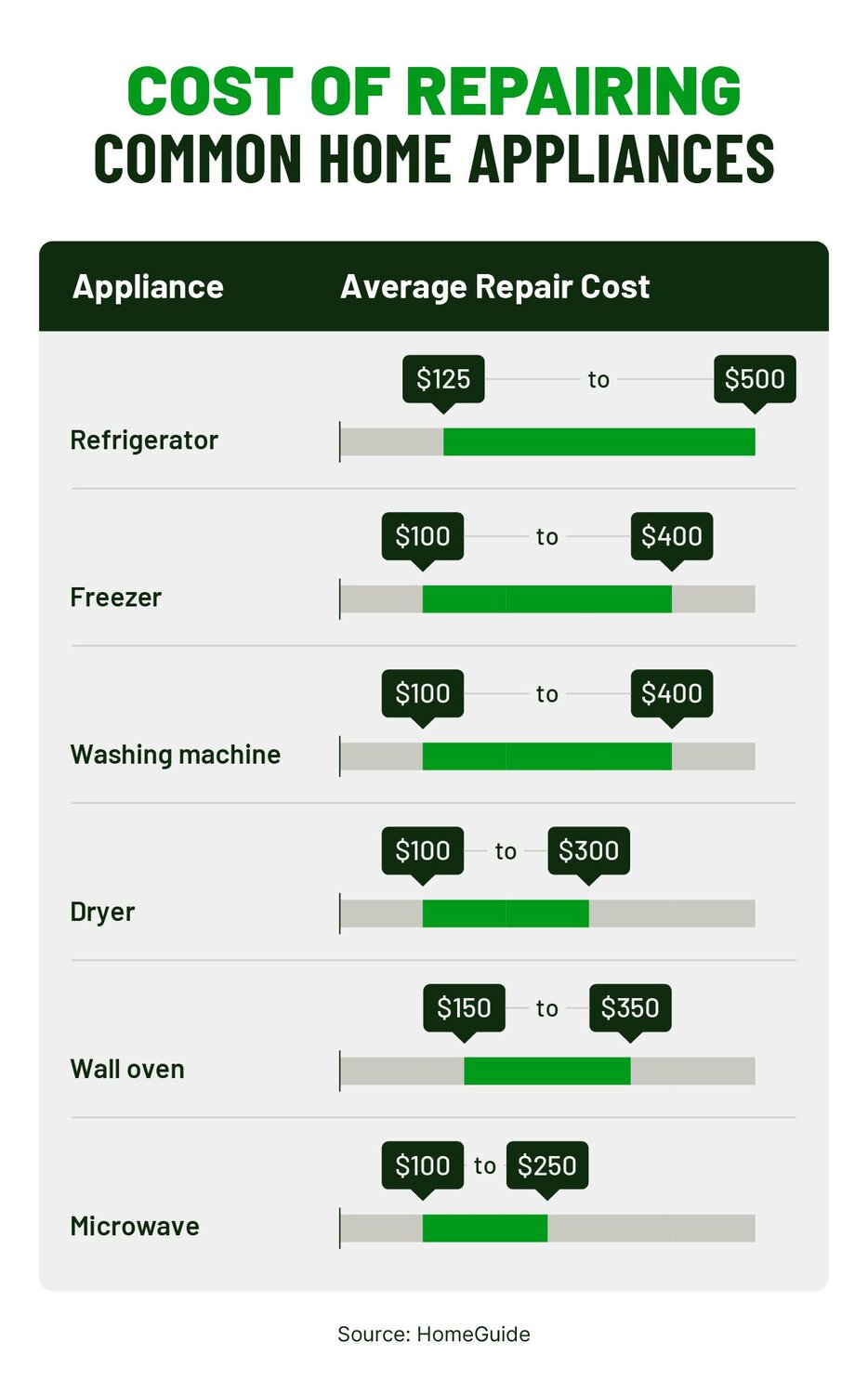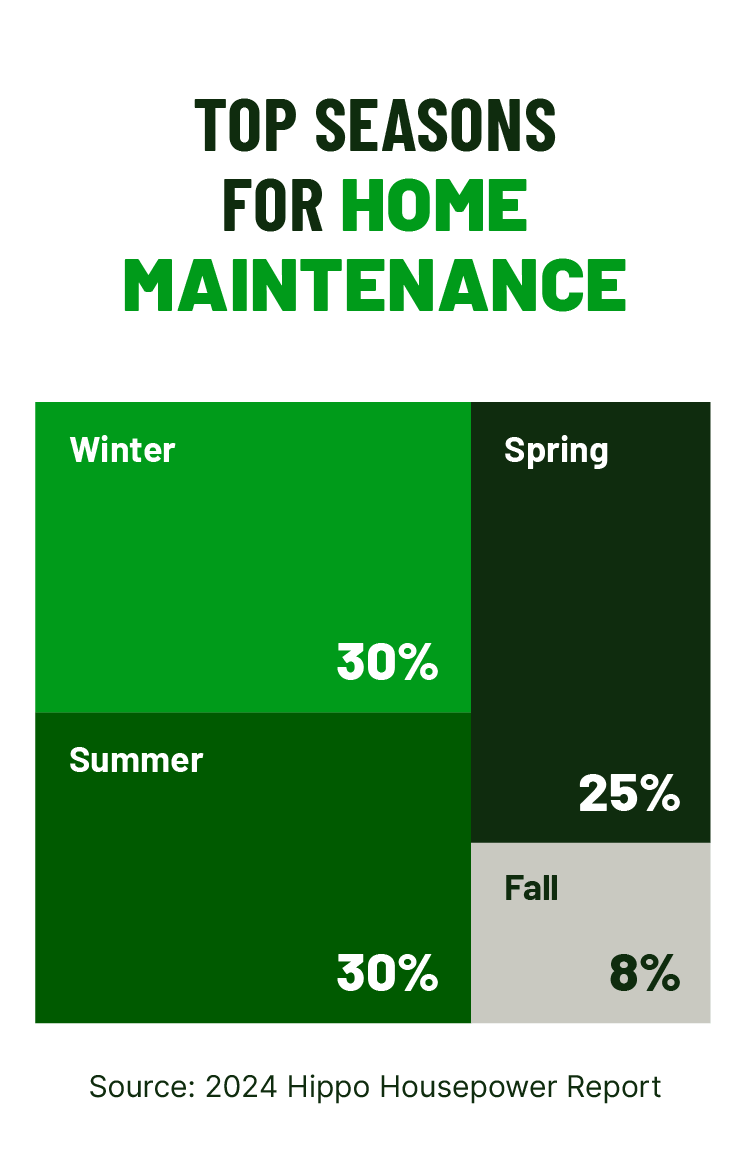Home Appliance Maintenance Tips To Help You Avoid Summer Meltdowns

Summer puts your home’s appliances to the test. As temperatures rise and usage spikes, systems like your HVAC, fridge, and dishwasher work overtime, making them more prone to wear and tear and sudden breakdowns.
Repair costs for these appliances can add up quickly. HVAC repairs can run between $350 to $900, while a broken dishwasher may set you back $150 to $220. It’s not just about comfort or direct repair costs—appliance failures can lead to water damage or even insurance claims.
Proactive maintenance can make a big difference. According to our homeowner regrets survey, 32% of respondents said they regretted putting off maintenance , and 27% of respondents regretted skipping DIY tasks like cleaning coils and vents .
Staying ahead of home appliance maintenance can help you protect your home, budget, and summer plans. Here are the appliances most at risk of damage during hot weather and the steps you can take to keep them running smoothly.

Refrigerators and freezers
- Check door seals for cracks or gaps that let cold air escape.
- Avoid overloading shelves, which can block airflow.
- Wipe down interior shelves regularly to prevent weird smells in your home.
- Vacuum condenser coils every six to 12 months to keep the motor from overheating.
- Keep appliances out of direct sunlight or away from heat-producing devices, when possible.
Air conditioners
- Replace or clean filters every one to three months, or more often during peak usage.
- Clear leaves, grass, and debris around your outdoor condenser unit.
- Inspect the drain line to make sure it’s not clogged and is draining properly.
- Schedule a professional tune-up in spring, before peak season.
Water heaters
- Flush the tank once a year to clear out sediment and improve efficiency.
- Test the pressure relief valve once a year to ensure it’s working properly.
- Check for rust, corrosion, or leaks around the base of the unit.
- Keep the thermostat set to 120 degrees to reduce wear and save energy.
Washing machines and dryers
- Inspect water supply hoses for cracks, leaks, or blockages.
- Clean the dryer lint trap before every load to prevent fire hazards.
- Vacuum behind the dryer and around vents regularly.
- Leave washer doors open after use to prevent mold and mildew buildup.
- Run a cleaning cycle with vinegar or washer cleaner monthly.

Ovens and microwaves
- Check oven door seals to ensure they’re intact and trapping heat properly.
- Wipe down spills and crumbs regularly to reduce fire risks and odors.
- Clean grease and charcoal filters on over-the-range microwaves to maintain airflow.
- Keep vents and surrounding areas dry to prevent moisture buildup.
Pool equipment
- Clean filters and regularly test and balance water chemistry.
- Inspect hoses and connections for cracks or heat-related wear.
- Check the pump basket frequently for debris and blockages.
- Keep equipment shaded or well-ventilated to prevent overheating.
What to do if an appliance fails or causes home damage
- If it’s safe, shut off electricity, gas, or water to the appliance.
- Document the damage with photos or videos before cleanup.
- Save all repair receipts, service logs, and replacement estimates.
- Contact your insurance provider as soon as possible to report the issue.
Download the home appliance maintenance checklist
Sources:
- All quotes sourced from Featured.com.





